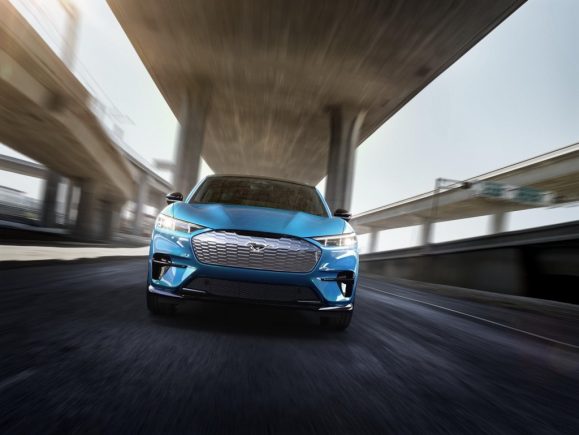Electric cars seem to have a promising future in India.
The future where “vrooom” is replaced by “eeeeee” doesn’t seem too far away in India to me. With the recent unveil of the Tata Nexon EV, MG ZS EV, Hyundai Kona EV, it would be safe to assume that companies see us charging our cars, just like our phones in the future. While we can’t just say goodbye to the legendary ICE just yet, I believe India will be one of the first countries to do just that, mainly because we just don’t care.
Note: This is an opinion based article, feel free to leave yours in the comment section.
Infrastructure – One of the easier problems to solve
One of the instant arguments against EV’s and their adaptation is the infrastructure. “Oh how in the world will we be able to setup so many charging stations in such a vast country enough to suffice the enormous energy needs?”. While the argument does make sense, it doesn’t seem impossible, because we are not going flat out yet. To the people who say this, just think about this, how do you think petrol stations are there in so many places? (Although you never seem to find one at the right time)
A petrol station is essentially a place where more than 40,000 litres of fuel is stored. Yet we see them once every two blocks in crowded areas. Mammoth tanker lorries carry fuel across the city to these places to offload the fuel retrieved from somewhere else. If such a large scale operation can be done on a daily basis for this many years, adding what is essentially a glorified plug point, with some tech in it, would not be such a big deal if we tried.
Another example, a very recent one is the mandatory FasTag in toll plazas. Yes, the transition has not been smooth so far, but it’s not an utter disaster either. Once the ball gets rolling, it goes fast in our country.
It’s the efficiency that matters for us
As much I love internal combustion engines, I hate to see the actual deficit in the efficiency they have. The Porsche Taycan got a lacklustre rating from the EPA of just 201 miles. But the direct energy comparison with fuel still gave it an MPG rating of 69. For reference, the Toyota Prius, the most loved car among enthusiasts, delivers a mileage of 22.11 kmpl on average, and sacrifices looking like a normal car while doing that. In comparison to the EV technology we have today, even in its primitive state, makes the internal combustion engine look complicated and unnecessary. Imagine telling that to Enzo Ferrari!
This is obviously why EV’s will become a success in India. One of the main things an average consumer looks for in a car is not safety, but mileage, and a good infotainment system. So when the consumer gets the eureka moment that EV’s are way cheaper to run, the rest of the problems will automatically solve themselves. Maruti says they have sold over 6 lakh automatic cars in India for over 5 years. That shows people despise the clutch pedal, and prefer the convenience of an automatic. Especially with the rush hour traffic that makes people question their sanity. Electric cars, in most cases, offer the convenience of two-pedal driving. Something the average consumer would love.
The battery and cost
One of the biggest problems with EV’s are currently cost. New technology is, well new, and hence is not standardised or subsidised yet. The biggest money grabber is the battery. The battery ironically is the most questionable part of an EV. In fact, companies will have to do something about the degradation of batteries. A recent study found out that heat and fast charging are the major conspirators for Li-ion battery degradation. This is quite concerning as fast charging is the one thing that would allow mass adaptation of EV’s. We need to find better alternatives. As Li-ion is a better alternative to decomposed dinosaurs, but not the best.
Coming back to the cost part. That is what is preventing the average consumer from having the aforementioned eureka moment. I want to talk about Hyundai and MG here. By launching an EV version of a car that is not currently sold in India. They leave a lot to the imagination of how much the electrification costs. This is a really good idea that Hyundai started with and MG followed.
The government plays a big part in speeding up this process. As it stands, the incentives are clearly not enough for the people to make the switch. While we can’t expect huge discounts, once this technology matures and becomes mainstream, we could see some incentives, both encouraging the purchase of an electric car, and discouraging the purchase of an ICE car.
Does all of this actually benefit the environment?
One thing I leave with you to digress is how much this electrification actually benefits the environment. I believe ever since Tesla started making supremely fast cellphones, the definition of an electric car has changed quite a bit. The electric car is no longer seen and designed like a tough pill to swallow for the sake of mother nature. While that is really good, for consumers, what one should not forget is the reason this is happening, and that is climate change.
We do not have strong data about the environmental friendliness of the factories of the cars. We should as the manufacturing of these batteries involves chemicals which are not very environment-friendly. Most of the energy stations that power factories in India are powered by coal. If we don’t treat the effluents properly, that leads to further pollution. At the end of the day, what is the point of such a switch if the pollution is still there, but comes from a different source?
Here’s a comprehensive explanation on why battery power is not the future.

